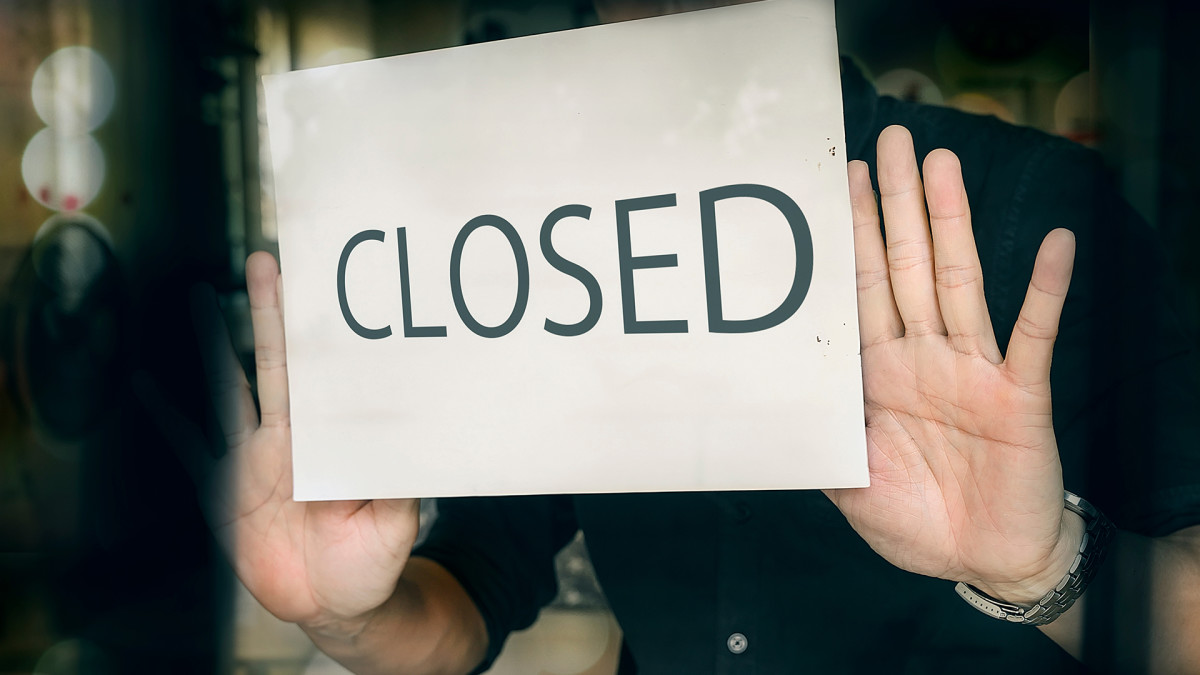
When a company goes bankrupt, its customers usually see some signs: Maybe inventory levels seem lower than usual or perhaps the ingredients being used to make something change.
In many cases, the signs are hiding in plain sight. Maybe some longstanding employees leave or other long-term fixtures of the brand quietly go away.
Related: Essential retailer faces key Chapter 11 bankruptcy deadline
With retailers, orders might get shipped more slowly or products that used to be in stock are now back-ordered. There's no one set of things to look for, especially during the holiday season when low inventory could be due to sales being strong. But regular customers of brick-and-mortar chains can often tell when things begin to go south.
For digital-first and digital-only brands, the signs may not be easy to spot. Perhaps your order shows up a few days late, but that could be the mail and not the company.
And in some cases the first sign of trouble is when the company tells customers it's in trouble. That's what happened with Disco, a popular men's skin-care brand that abruptly shut down Nov. 16 after it filed for Chapter 7 bankruptcy in a Delaware court.

Image source: Getty Images
Disco skincare brand abruptly closes
By all outside signs the Disco skin-care brand was thriving. But the Chapter 7 filing, which was made under the company's formal name, Let's Disco Inc., painted a very different picture.
In the filing, the company said it had between 50 and 99 creditors. It also declared that it had estimated liabilities between $1 million and $10 million. That's a broad range, but the damning news for customers — many of whom had prepaid for some orders — is that Disco declared that it would not have any money left over for unsecured creditors.
The voluntary Chapter 7 filing was made by the company's president and sole director, Benjamin Smith.
Disco's Instagram page is still up, but all its sales pages have been removed. The company has not posted officially about the bankruptcy, but Smith on his LinkedIn spoke to what had happened.
A quick and sad end for Disco skincare
Disco sold what it called science-backed skin-care products for men. The company called its products "effective formulas made with clean ingredients."
Smith apologized to customers who will not get their orders, vendors who will not get paid, and investors (including family and friends) who have lost their money.
He said the company had been successful and between 2020 and 2021 had raised $8 million.
"Unfortunately for us, 2022 and 2023 had different plans for our business. We struggled to raise capital to fund the business. As our cash position waned, our debt load grew," he wrote.
Smith said that the company explored multiple options to survive. That included continued efforts to raise money and multiple attempts to be acquired. The company had also looked into a Chapter 11 filing.
"In a bid to salvage the business, we reduced our burn rate, right-sized our unit economics, and maintained a lean team,” he added.
Disco lender foreclosed on a loan
Smith was forced to abruptly close the company when its lender foreclosed on its loan. That took all restructuring off the table and caused the company not to ship orders to "thousands of subscribers," according to Smith's post.
The Disco founder blamed the company's failure on the business it chose to go into.
"Skincare is a tough category. Selling skincare to men is even more difficult," he said. "Persuading men to adopt new behaviors is an expensive marketing challenge."
He also said that when Apple (AAPL) -) changed how products could be sold on its platforms, Disco's customer-acquisition costs skyrocketed. When Apple released iOS 14.5, it required customers to provide permission for apps to collect and share data.
"This major privacy initiative means that the percentage of iPhone users sharing their unique Identifier for Advertisers with apps will drop from 70% to as low as 10%," wrote ROI Revolution before the operating system update was released.
Receive full access to real-time market analysis along with stock, commodities, and options trading recommendations. Sign up for Real Money Pro now.







